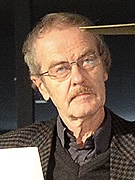Adolf Wissel was a German painter. He was one of the official artists of Nazism.
Hermann Bahlsen was a German entrepreneur in the food industry as well as the inventor of the Leibniz butter biscuit and founder of the Bahlsen confectionery factory.
Helmut Knocke is a German architecture historian and author.
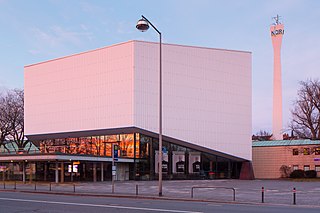
The State Radio House of Lower Saxony is a group of buildings owned by the public broadcaster Norddeutscher Rundfunk in Hanover, the state capital of Lower Saxony, Germany.

Hanover Drama is a theatre company in Hanover, the state capital of Lower Saxony, Germany. The company is resident at the Hanover Playhouse situated approximately 200 metres (660 ft) east of Hanover Opera House, and the Ballyard situated approximately 530 metres (1,740 ft) west-southwest of the opera house in the old town. Collectively these venues have five stages:
Heinrich Lutter was a German pianist and piano educator.

Klaus Mlynek is a German historian and scientific archivist, a former director of the City of Hanover Archive, and one of the editors and authors of the Hannover City Lexicon, an encyclopedia of Hanover.
Waldemar R. Röhrbein was a German historian. He worked as a museum director in Lower Saxony, his last post being from 1976 to 1997 at the Historisches Museum Hannover, and was president of the Homeland Federation of Lower Sachsony. He contributed to encyclopedias about Hanover's history and culture.

Hanover Historical Museum is an historical museum situated in Hanover, the capital of Lower Saxony, Germany. The museum was founded in 1903 as the Homeland Museum of the City of Hanover. Its collections are related to the history of the city, the history of the House of Guelf, and of the state of Lower Saxony.
Dirk Böttcher was a German printer master, author and president of the association of Friends of the Historisches Museum Hannover.
Gotthard Kronstein was a German operatic baritone and theatre director.
Greta Hofer, néeGreta Köhler, pseudonym Greta Colere was a German opera singer.

Reimar Dahlgrün was a German pianist, professor at the Hochschule für Musik, Theater und Medien Hannover and journalist.
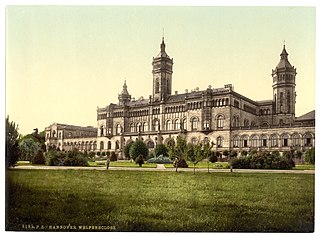
Christian Heinrich Tramm was a German architect who, in 1850, introduced the Rundbogenstil in Hanover.
Adolf Falke was a German architect, draughtsman, designer, stage designer and municipal politician.
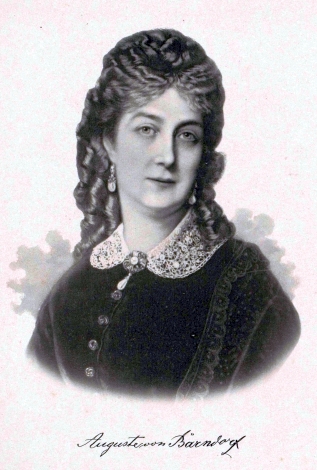
Auguste von Bärndorf was a German stage actress.

Broyhan House is a residential and commercial building constructed in 1576 in Hanover's historic old town. It is the second-oldest preserved half-timbered building in Hanover, and stands on the cellar walls of an earlier building dating to the 14th century. The house is named after Cord Broyhan, a brewer who lived in an earlier building from 1537 until 1561.

The Otto Werner clothing store opened in 1932 in Hanover, the capital of Lower Saxony, Germany. By 1985, the store had expanded to several branches throughout the state. After the original store closed in 1999, the enterprise ceased operating in 2001.
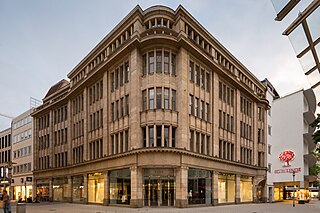
Elsbach & Frank was a textile retail business founded in the 19th century in Hanover, the capital of Lower Saxony, Germany. The department store built by the business on the corner of Osterstraße and Große Packhofstraße, called Zum Stern, is the only building in the city centre that survived the air raids on Hanover during the Second World War without major damage. Today, the building houses a branch of the Spanish fashion chain Zara.

Ferdinand Elsbach was a German textile merchant and manufacturer.
